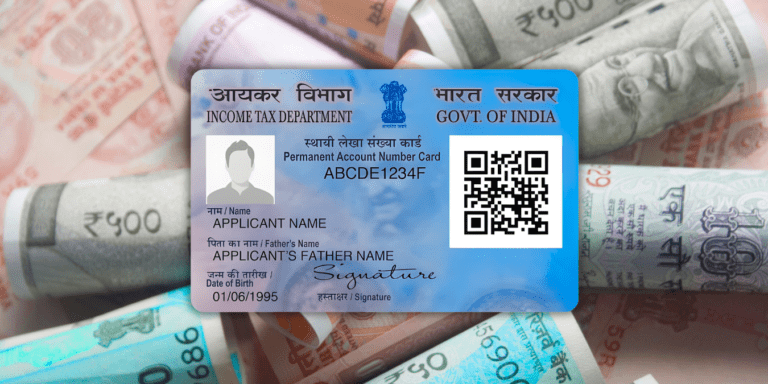
The Finance Act 2025 GST Pre-Deposit Rule: What The Changes Mean For Your GST Penalty Appeals
India’s 2025 GST appeal shake-up! Did you know that now even penalty-only demands require a hefty 10% pre-deposit, capped at ₹20 crore? This hidden Finance Act 2025 change rewrites the rules of filing appeals under Section 107(6) CGST, threatening to disrupt taxpayer strategies and cash flows like never before. What does this mean for your business’s future? Discover the secret behind this game-changing amendment and learn how to stay ahead before it’s too late. Don’t miss out on this quick, smart insight!
The Finance Act 2025 has brought a smart and significant shake-up to the GST appeal process in India, specifically impacting the mandatory pre-deposit rule under Section 107(6) of the CGST Act. This amendment, effective April 1, 2025, enforces a mandatory pre-deposit of 10% on disputed tax or penalty amounts before an appeal can be filed, even for penalty-only demands — a sharp departure from earlier provisions. With a new cap of ₹20 crore on such pre-deposits, the law attempts a hidden balance between protecting government revenues and preserving taxpayers’ right to appeal.
Here is a detailed, reader-friendly guide explaining this shocking yet crucial change, packed with quick insights, practical takeaways, and real-world context tailored for Indian businesses and taxpayers navigating the future of GST appeals.
The Mandatory Pre-Deposit: What’s Changed?
Before April 1, 2025, Section 107(6) mandated that a taxpayer could file an appeal against tax demands only after paying the admitted amount and 10% of the disputed tax, capped at ₹25 crore. However, no pre-deposit was required if the appeal involved only penalty or fee amounts.
The Finance Act 2025 amendment has introduced these key changes:
- Pre-deposit is now mandatory even for penalty-only appeals: Taxpayers must deposit 10% of the penalty amount upfront before filing an appeal if no tax is demanded.
- The cap on the pre-deposit amount for tax disputes reduced: The maximum pre-deposit cap has been lowered from ₹25 crore to ₹20 crore.
- Applies to both the first appeal (Appellate Authority) and further appeal (Appellate Tribunal): Separate 10% pre-deposits are required at each appeal stage.
This means that if the order demands only penalties, or both tax and penalties, the taxpayer must make a substantial pre-deposit to challenge the order efficiently.
Why Was This Change Needed? The Hidden Rationale
The GST appeal process has long faced criticism for lengthy litigation delaying revenue collection, particularly with penalty-only orders where tax is not disputed but penalties are imposed.
- Revenue protection: The government aims to prevent frivolous or overly delayed appeals that defer penalty payment.
- Encouraging compliance: Pre-deposits create a financial discipline encouraging taxpayers to carefully evaluate their appeal decisions.
- Balancing taxpayers’ rights: The reduced cap from ₹25 crore to ₹20 crore helps ease the pre-deposit cash flow burden, avoiding excessive working capital strain.
This pragmatic amendment reflects a smart attempt to optimize compliance enforcement while still respecting valid appeal rights.
Breaking Down Section 107(6) After Amendment: A Quick Guide
Section 107(6) now reads:
- The appellant must pay:
- (a) Full amount of admitted tax, interest, fine, fee, and penalty.
- (b) 10% of the remaining disputed tax amount, capped at ₹20 crore.
- Proviso: For penalty-only orders without tax demand, 10% of the penalty must be paid as a pre-deposit before appealing.
This rule applies to the first appellate authority, and a similar rule applies under Section 112(8) for appeals to the Appellate Tribunal, requiring an additional 10% pre-deposit of the disputed amount.
Real-World Example: Calculating Pre-Deposit Made Easy
Suppose a GST order demands:
- Tax: ₹5 crore
- Penalty: ₹2 crore
Under the new rules:
- For the first appeal:
- Deposit admitted amounts fully.
- Pre-deposit 10% of disputed tax → ₹50 lakh (10% of ₹5 crore capped under ₹20 crore).
- Additionally, if appealing penalty only, 10% of penalty → ₹20 lakh.
If the appeal proceeds to the GST Appellate Tribunal, an additional 10% pre-deposit on tax and penalty is required.
This layered payment ensures taxpayers don’t bypass financial accountability while appealing.
Practical Implications for Businesses and Taxpayers
- Cash flow impact: The mandatory 10% pre-deposit even on penalty-only demands means firms must plan for upfront cash outflows when considering appeals.
- Appeals strategy: Businesses may prefer resolving disputes amicably rather than risk costly appeals requiring substantial pre-deposits.
- Cap relief: The ₹20 crore cap moderates the financial stress for large cases, although for many SMEs even a 10% pre-deposit is significant.
- Penalty only appeals: Earlier, taxpayers could file penalty-only appeals without pre-deposits, now that door shuts, influencing penalty litigation strategies.
Amid these changes, smart tax planning and proactive dispute resolution assume greater importance for Indian businesses navigating GST compliance.
Trending Insights: How Top Tax Experts View the Amendment
- Streamlining dispute resolution: Experts believe the pre-deposit amendment will reduce frivolous appeals and speed up tax administration.
- Fairness concerns: Some note that mandatory pre-deposits may deter genuine taxpayers with cash flow constraints, urging for balanced relief mechanisms.
- Technology integration: Tax authorities are leveraging digital e-ledgers to enforce pre-deposits, enhancing transparency and reducing procedural delays.
Such perspectives highlight the evolving shape of GST appeal administration in India’s dynamic fiscal landscape.
Quick Tips for Navigating the New Pre-Deposit Regime
- Review orders carefully: Identify admitted amounts early and assess disputed tax/penalty figures to estimate pre-deposit liability.
- Plan finances: Allocate funds upfront to meet pre-deposit demands before filing appeals.
- Explore alternative dispute resolution: Consider mediations or settlements to avoid costly appeals where viable.
- Stay updated: Monitor notifications from CBIC and GST Council for procedural clarifications and compliance deadlines.
Being proactive and informed will help taxpayers avoid unexpected hurdles under the amended law.
Key Takeaways at a Glance
- The Finance Act 2025 mandates a 10% pre-deposit on both tax and penalty amounts for GST appeals.
- The pre-deposit cap reduces from ₹25 crore to ₹20 crore, easing financial burden for large taxpayers.
- Penalty-only appeals now require mandatory pre-deposits, a new and significant change.
- Separate 10% pre-deposits required at the first appeal and appellate tribunal stages.
- The amendment aims to strike a balance between appeal rights and government revenue protection.
- Businesses need to prepare for upfront cash flow impacts and possibly revisit appeal strategies.
- Tax experts view the amendment as a positive step toward streamlined dispute resolution, with some caution about taxpayer affordability.
Final Thought: The Future of GST Appeals Is Changing—Are You Ready?
This amendment to Section 107(6) is not just a technical tweak but a future-focused move shaking up the GST appeal landscape in India. By mandating prepaid financial accountability even on penalty demands, the government sends a clear signal: appeals must be genuine, backed by upfront commitment.
For taxpayers and businesses, this calls for smart planning, sharper litigation strategy, and heightened financial preparedness. How will this reshape the GST disputes arena? Will taxpayers adjust quickly, or could this lead to a surge in settlements before appeals? The answer will unfold as the new rules take hold — but one thing is certain: the era of “free” penalty appeals is over, revealing a new, more disciplined chapter in India’s tax journey.






























